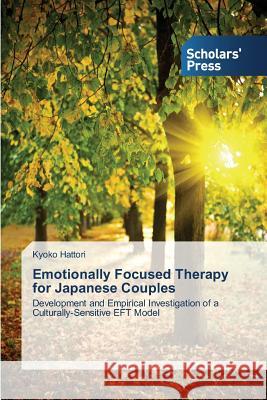Emotionally Focused Therapy for Japanese Couples » książka
Emotionally Focused Therapy for Japanese Couples
ISBN-13: 9783639712384 / Angielski / Miękka / 2014 / 104 str.
In this article, EFT, an attachment-based couple therapy model, is adapted for use with Japanese couples. Two studies were conducted to support development and evaluation of the cross-cultural applicability of this model. In the initial study, differences between 200 Japanese and Canadian male and female relationship partners were assessed using cross-culturally validated and reliable relationship. Culture-sensitive recommendations to complement EFT intervention strategies were made to account for these differences prior to EFT implementation in this population. In a second study, an outcome and process study employing culturally-sensitive EFT interventions was conducted using three Japanese couples. This study is significant in that it is the first to empirically evaluate the cross-cultural validity of EFT. The model is predicated on the notion of attachment as a universal process.
In this article, EFT, an attachment-based couple therapy model, is adapted for use with Japanese couples. Two studies were conducted to support development and evaluation of the cross-cultural applicability of this model. In the initial study, differences between 200 Japanese and Canadian male and female relationship partners were assessed using cross-culturally validated and reliable relationship. Culture-sensitive recommendations to complement EFT intervention strategies were made to account for these differences prior to EFT implementation in this population. In a second study, an outcome and process study employing culturally-sensitive EFT interventions was conducted using three Japanese couples. This study is significant in that it is the first to empirically evaluate the cross-cultural validity of EFT. The model is predicated on the notion of attachment as a universal process.











